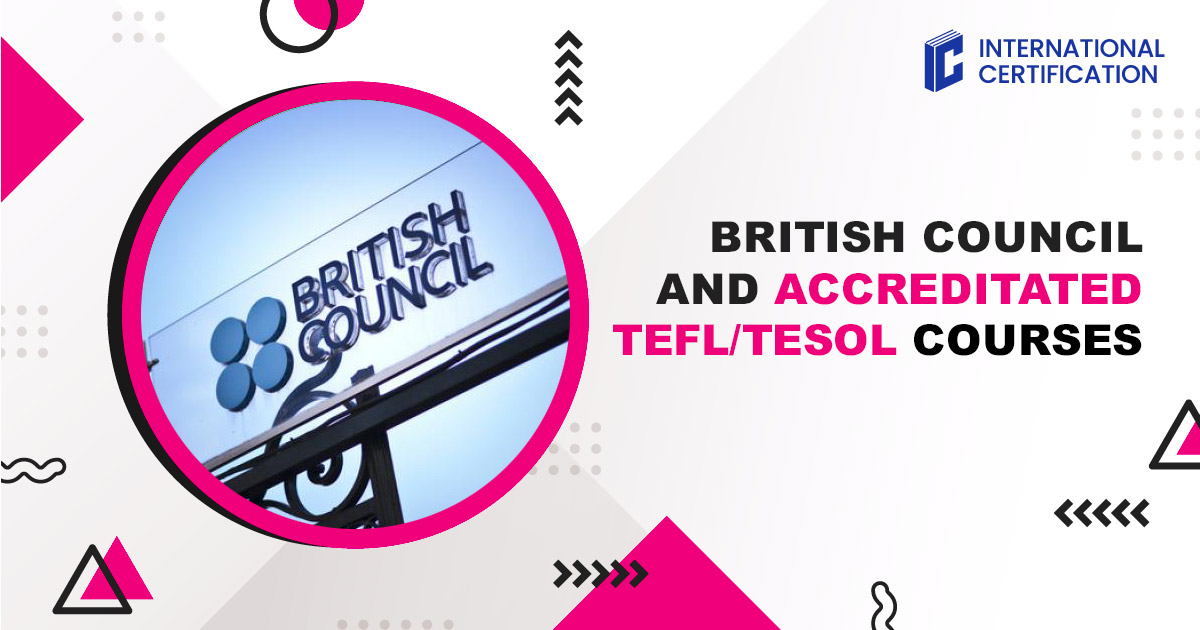And start earning money 💸 by teaching English in your own country, abroad, or online from anywhere on the planet! 🎁 Gifts and bonuses: professional support from your personal coach 🧑🏫 and job placement assistant 💼.
Table of contents
With the world population becoming increasingly diverse and connected, it’s common to meet a non-native English speaker. If you want to teach English to non-native speakers, you should know about TESOL meaning.
By pursuing a TESOL certification, you can connect to classroom teaching. TESOL is all about the strategies of teaching skill-based tasks associated with reading, speaking, listening, and writing. The TESOL course is a comprehensive compilation of methods and techniques needed in daily teaching processes. As an aspiring English educator, here are some essential aspects to know about TESOL.
Definition and Scope of TESOL
English language teachers should know about the TESOL definition to understand its scope. The meaning of TESOL is to teach English to the non-native speakers. In simple words, the TESOL certification aims to equip you with skills to teach English to non-native speakers.
TESOL also helps teachers understand how language and culture interact with one another. Many native English speakers know how to use grammar and vocabulary properly. However, they may not have the rules to explain the proper application of vocabulary and grammar.
By pursuing the TESOL training, you will be better equipped to teach non-native English speakers. The certification allows you to teach English in almost any country worldwide. Wherever you plan to work as an ESL (English as a Second Language) teacher, you will require the TESOL certification.
History and Evolution of TESOL
Besides understanding the TESOL certification meaning, you should know its two popular forms.
- TESOL as a professional organization
- TESOL as a training program to teach English to non-native speakers
Formed in 1966, TESOL is an independent and professional body representing teachers of English to speakers of other languages. Moreover, it is a globally recognized education association with more than 13000 members and 90 affiliates. These affiliates are present in more than 120 countries worldwide.
The mission of TESOL is to ensure excellence in English language teaching to non-native speakers. Here are the five organizations that were involved in forming TESOL.
- The Center for Applied Linguistics
- The Modern Language Association of America
- The Speech Association of America
- The Council of Teachers of English
- The Association of Foreign Student Affairs
The formation of TESOL as a certification course has been influenced by the domestic and international economic and political climate. The following methodologies of the TESOL certification have undergone change over the years by considering the needs of modern learners.
- The Grammar Translation Method
- The Audiolingual Method
- The Communicative Approach
- The Direct Method
The methodologies and syllabus of TESOL will continue to grow and develop in the future.
Importance and Benefits of TESOL
TESOL can increase your chances of landing a teaching job in the US or other countries. Getting TESOL certified means you have completed a minimum of 120 hours working through the course content. The 120-hour TESOL certificate has the most comprehensive curriculum. However, it is beneficial to obtain 150-hour or 250-hour TESOL certificate. You can compare the courses here.
Moreover, this course has a self-paced nature, and students aren’t needed to meet the weekly deadlines. Here are the benefits associated with the TESOL certification.
Access to Better Opportunities
For TESOL-certified teachers, working and traveling are much more accessible. Moreover, with a TESOL certification, you will have access to better employment opportunities. This certification is accepted by most colleges and language schools.
It would be easier for you to build a rewarding career with a TESOL certification. For instance, you can teach English in countries like China, Mexico, Japan, European countries, etc. Such a teaching experience will expand your horizons.
Excellence in translation, linguistics, and interpreting can lead to rewarding careers in business. Besides teaching, you can explore career opportunities like speech pathologists and therapists.
Adds Highly Valuable Skills to Your Resume
TESOL lets you show employers that you’ve formal training in teaching non-native speakers of English. The TESOL certification will let you streamline your English language teaching skills.
By understanding the TESOL definition correctly, aspirants can learn about cross-cultural communication and language change. In other words, the TESOL certification can enhance your resume’s value and open up a world of opportunities.
Aspirants will have the opportunity to learn innovative teaching methods and develop Prociency in English training. TESOL is unique as it allows you to understand the relationship between culture and language.
Upgrade your Communication Skills
One way to define TESOL and its effectiveness can be the way the certifications build your Prociency in communication. The TESOL course requires a student to hone their communication skills which come in handy in the future. You can use the learning derived from the TESOL certification in different aspects of life. TESOL certification also lets you improve your business communication skills.
Makes it Easier for you to Obtain a Visa
The TESOL certification can also make it easier for you to obtain a visa in the country where you wish to work. Moreover, the certification will boost your chances of being appointed by popular online teaching platforms.
To get approved by these teaching platforms, you need an internationally recognized teaching certificate. And if you meet their requirements, you can even work remotely part-time. Being aware of the TESOL meaning will let you understand its scope.
Allows you to Grow Professionally
One of the critical highlights of TESOL is that you’ll grow professionally. The TESOL certification programs can help enhance your leadership skills and impart you how to grow interactive learning knowledge for students.
For instance, the Advanced Practitioner Program of TESOL allows teachers to design and create lesson plans. Teachers will also know how to present their findings with this course. Learning about the TESOL meaning in English will assist you in receiving a globally recognized certificate.
Grows your Confidence for Classroom Teaching
The TESOL certificates aim to equip you with skills on how to teach. Besides understanding the TESOL whole meaning, you can learn how to teach abstract grammar topics. You will also be instructed on how to assess students and manage their behavior.
💡 Unlock the secrets to doubling your teaching income with our exclusive checklist! 🎯 This checklist is designed for English teachers who want to 📈 attract more students and 🔥 keep them engaged for the long term.
Key Concepts and Methodologies in TESOL Instruction
One should have a sound understanding of the TESOL course meaning. The critical methodologies in TESOL instruction are:
- The Grammar Translation Method
It refers to a way of teaching English derived from the classical method of teaching Greek. - The Communicative Approach
In TESOL, a communicative approach is a teaching approach that highlights the importance of accurate communication for learning. With this methodology, the learners acquire the skills to communicate in English. - The Audiolingual Method
It is another essential methodology in TESOL that emphasizes speaking and listening before writing and reading. The audiolingual method states that students should be taught English directly. Teachers shouldn’t use the native language of students in class. - The Direct Method
In TESOL instruction, the direct method of teaching English implies the immediate use of the target language. With this method, the learner thinks and speaks using the same medium. Moreover, the direct approach emphasizes functional grammar.
Learners should know about the scope and TESOL certification definition properly. Here are the essential concepts in TESOL that every learner should know.
- Present Meaning before Form
It is one of the most essential concepts of TESOL. The meanings and concepts should be presented through non-linguistic cues like pictures, videos, etc. Ideas can be more clearly understood by students compared to complex words and phrases. - English should be Contextualized
Usually, English used in and out of the classroom typically happens in a context. We communicate in English based on the situation. But an integral concept in TESOL is to contextualize the classroom for learners. A clear context acts as a landing pad for learners. - A Greater Emphasis on the Pronunciation
Knowing about the TESOL certificate meaning and scope will help you evolve as a teacher over time. It is essential to emphasize pronunciation rather than just the importance of the words. Non-native speakers need to learn the correct pronunciation to spell words correctly.
Career Opportunities and Paths in TESOL
TESOL and TEFL meaning are precisely the same. They both mean teaching English to non-native speakers of English. TEFL is commonly used when you want to teach English abroad in a foreign country.
On the other hand, TESOL refers to teaching English to non-native speakers in an English-speaking country. Nowadays, most TESOL programs combine theory with practical teaching experience. Here are the top career opportunities in TESOL that you should know.
🚀 More students, 💰 higher income, 🌍 complete freedom! ✅ 112 verified platforms with top rates ⏳ Flexible schedule – work whenever and as much as you want 🎯 Simple requirements – start earning right away 💎 Boost your career and income by teaching students worldwide!
Working as an Adult Education Teacher
Adult education teachers work with adults who are seeking further education in GED preparation and English as a Second Language. As an adult education teacher, you have to work in community colleges, nonProts, correctional homes, etc.
You should note that the students here are adults. Therefore, they will likely have responsibilities outside of school. Teachers should be in areas like scheduling classes and workload management of their students.
ESL Instructor
The ESL instructors work with non-native English speakers of all ages. As an ESL instructor, your primary responsibility is to teach students to communicate in English. Teachers should also know about TEFL and TESOL, meaning to differentiate between the learning objectives. It’s essential for you to be a skilled communicator. This is because you’ll be working with students belonging to different levels of Prociency in English.
Academic Advisor
The academic advisors work primarily at universities to allow students to meet their educational objectives. As an academic advisor, you may also offer suggestions on personal concerns that affect the student’s education.
Instructional Designer
The primary responsibility of an instructional designer is to develop learning systems like educational resources and learning systems. You will also have to research the advancements in educational technology and deploy them to the learning process.
The meaning TESOL typically indicates to make learners adept at teaching English to non-native speakers.
Common Misconceptions about TESOL
The demand for English teachers abroad is pretty high. You shouldn’t be misled by the following TESOL misconceptions.
- It is Hard to Find an English Teaching Job Abroad
It is a primary misconception among the TESOL aspirants. But nowadays, there is a massive demand for English language education worldwide. With the right skills, you will always be able to find a job. ESL teachers are pretty popular in the world right now. - TESOL is not a High Paying Profession
Aspirants should be aware of the meaning of TESOL in education. The salaries of the teachers vary from country to country and city to city. The salary always depends on the location of where you are teaching. If you want to make the most money teaching English abroad, the Middle East is the best option. - You have to Speak Another Language
Most of the time, your students don’t expect you to know their language. This is because you are the English teacher. They know that your primary responsibility is to teach students in English. However, you should be aware of the introductory phrases of the students you’re preparing.
Conclusion
There are lots of benefits to knowing the full meaning of TESOL. As the world becomes more globalized, many jobs require their employees to speak English. In other words, there is a growing demand for ESL teachers worldwide. You should get TESOL certified and realize your dreams of teaching English to non-native speakers.
Terms used:
ESL, TEFL, TESOL

York Fern
An English instructor with 12+ years of experience. I work for an online school and travel the world, teaching students from various countries, leveraging my TEFL/TESOL certification. Seeing the world's oceans, mountains, and cities with my own eyes has given me a profound appreciation for the importance of quality education and international communication.
and start earning by teaching English in your country, abroad, or online from anywhere in the world! Order the course with a 50% discount 💸 and receive as a gift the support of a personal coach 👨🏫 and job placement assistant! 🎁🚀 Hurry, limited spots available! 🏃♂️💨
💡 Unlock the secrets to doubling your teaching income with our exclusive checklist! 🎯 This checklist is designed for English teachers who want to 📈 attract more students and 🔥 keep them engaged for the long term.
🚀 More students, 💰 higher income, 🌍 complete freedom! ✅ 112 verified platforms with top rates ⏳ Flexible schedule – work whenever and as much as you want 🎯 Simple requirements – start earning right away 💎 Boost your career and income by teaching students worldwide!
choose us?




